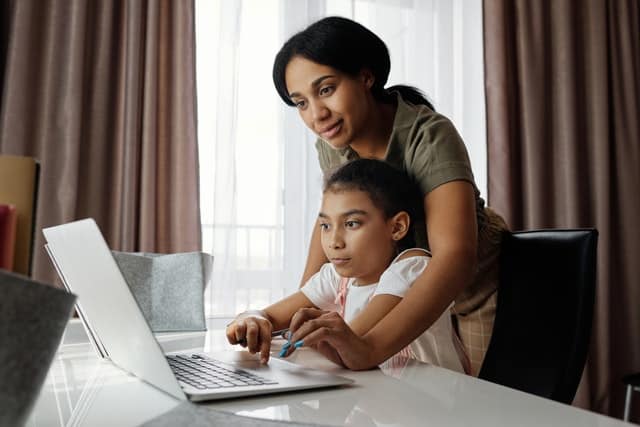It is essential for us as a society to understand the importance of the younger generation, their exposure to the digital world; and the right way to guide them to become young digital leaders. Young people between the ages of 9-16 will use the internet weekly, while over 60% will access the internet daily. Young people use it mainly to search for information, use social media, browse videos, and talk to their friends. These digital natives are incredibly tech-savvy, but often do not know how to approach some of the key challenges they face online. Nearly a third of children aged 11-17 have reported seeing and hearing hateful speech online, but many of them struggle to understand how to respond.

[Tweet “Despite having a high level of knowledge when it comes to how to use technology, young people can often lack solid knowledge of its effects”]
How can we get involved?
Although parents and carers are the best suited to educate, protect their children and raise them to become empowered and responsible citizens, it can often be hard to address these issues because of the gap between their children’s offline and online activities, and their lack of visibility on it. Digital citizenship is still rarely at school, and teachers are often not equipped to tackle these issues with modern and non-formal education impactful approaches. That is why it is crucial to arm educators, parents, and carers; so they can help bridge the gaps between citizenship, education, and digital literacy education; by being part of a comprehensive approach to digital citizenship.

As primary educators of your children, parents, and carers are best positioned to have the greatest educational impact on their children. Getting parents and carers involved is paramount to ensure a sustainable behavioral change of children; both offline and online, so this next generation of young adults paves the way for safer uses of the internet. Parents and carers may sometimes feel that their children are more adept at using technology, however, young people need support and encouragement when it comes to managing their lives online. We understand that striking the right balance between protecting your children and respecting their privacy can be challenging, but they will be more likely to develop and maintain safe, online behaviors with your help.
Read: How to Raise Future Leaders for the Future
Tips on Discussions to have with your Child
Parents and carers may sometimes feel that their children are more adept at using technology; however, young people need support and encouragement when it comes to managing their lives online. We understand that striking the right balance between protecting your children and respecting their privacy can be challenging; but they will be more likely to develop and maintain safe, online behaviors with your help.

To guide them to become critical consumers online
- Offer to explore sites and apps together. Talk through the kinds of decisions you make when you are online and explain the reasons why.
- Talk to your children openly about fake news and hate speeches. Discuss examples of where you have both seen these things online.
- Ensure they know and acknowledge the sources from where they get their information. Guide them to use trustworthy content, and to remember to give credit when using other people’s work/ ideas.
- Ask your child about how they stay safe online. What tips do they have for you, and where did they learn them?
- Encourage your child to always talk to you about any problems, online and offline.
To support them to become effective communicators online
- Show them the different ways in which the internet can be used (research, watching the news, talking to their friends) and how the tones differ according to platform and audience.
- Show them how they can communicate positively online, perhaps through a blog post or creating a video.
- Encourage your child to be respectful and responsible when communicating with others online, and to consider how what they share may reflect on them.
- Guide them to be attentive to both their emotions and the feelings of others when they communicate: this is essential for effective communication both on and offline.
- Teach your children to think critically before they post or share information. Rather than automatically share and click, young people need to pause and reflect.
To encourage them to be champions of their own and other’s right online
- Encourage them to look out for the wellbeing of their friends online, if they feel they need support. Help them find out what options they have, and support them in their actions.
- Encourage them to use the internet to make their voice heard; perhaps by sharing a post on an issue they are passionate about; or by starting or joining online campaigns against fake news or hate speech. This can give them the confidence to lead by example; as well as inspire them to share the knowledge they have gained with their peers online.
- Discuss the importance of reporting inappropriate conversations, messages, images, and behaviors and how this can be done.
- Show them how to keep information private, report comments, and block users if they are not sure how.
- Build trust and confidence so that your child does come to you if something happens
Creating an enabling environment for our future leaders is important for them to find their place in society. Close guidance is something they do not know they need; therefore we need to facilitate this closeness to make them the best they can be in the digital world.
Culled from Young Digital Leaders Parent Guide


